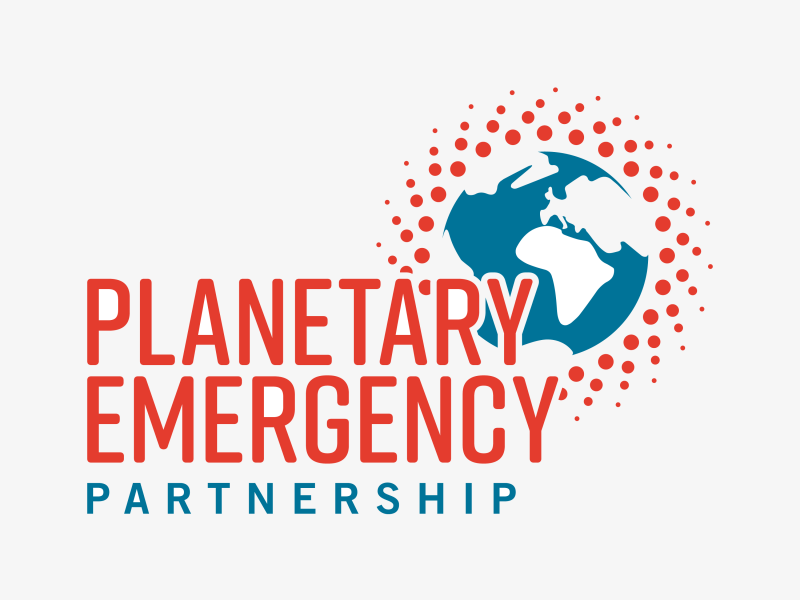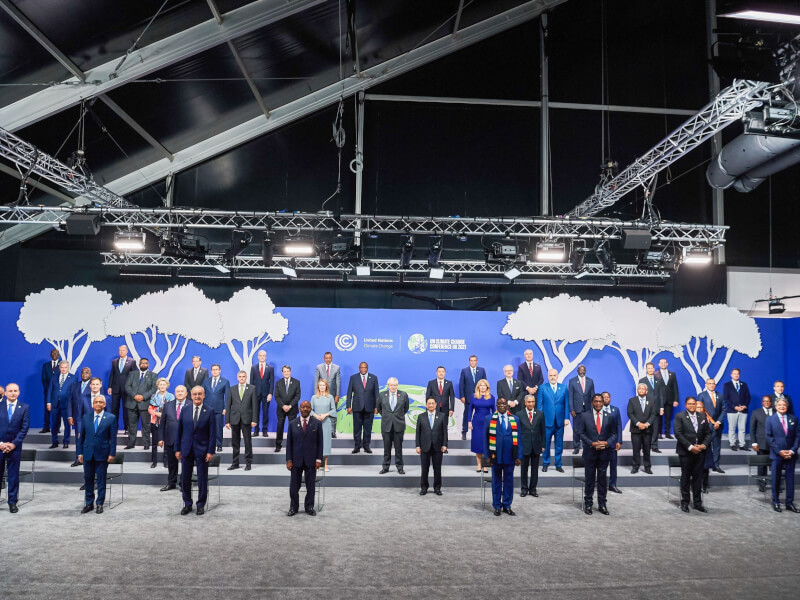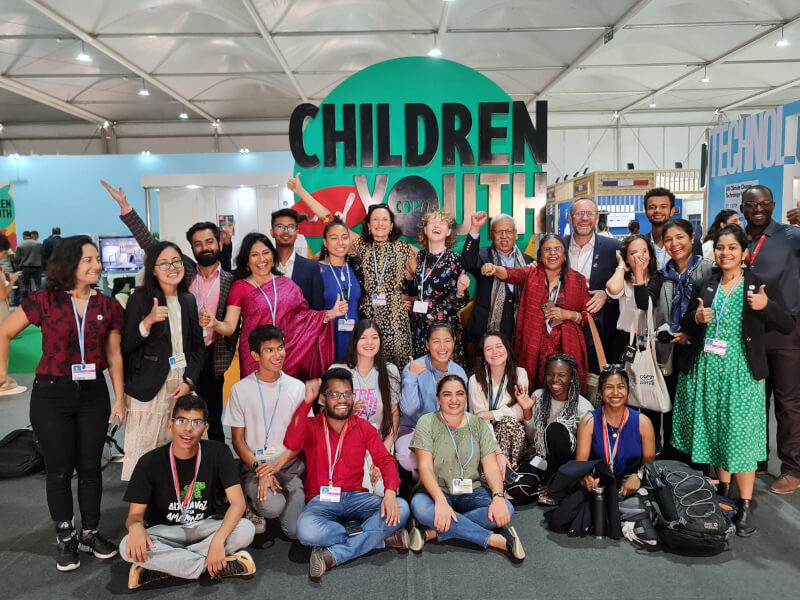10 June 2021 – The COVID-19 pandemic has shocked the world and brought immense suffering and economic chaos. A resilient, net-zero, nature-positive global economy[1] will be a critical driver of human health, well-being and prosperity[2] and must be at the heart of a global COVID-19 recovery. Yet, many of today’s investments are working against this goal, casting a long shadow on resilience to future shocks from climate, biodiversity loss and health pandemics.
We welcome a leaders’ commitment for nature as proposed by the UK Presidency of the G7, with a level of ambition at least as ambitious as the Leaders’ Pledge for Nature[3], and very much support the UK COP26 Presidency’s calls for climate action from financial institutions to align with a CBD and Paris-compliant, science-based trajectory by 2025.[4] Noting the historic decision by G7 Finance Ministers on corporation tax.
Political leadership is needed to ensure that we put in place the right mechanisms to ensure a Paris-compliant finance sector, which does not lock in investments that continue to drive nature and climate negative stranded assets, hampering any hopes of reaching our 2030 or 2050 ambitions. To emerge from emergency into a regenerative economy that leaves no-one behind and operates within the planetary boundaries, we need to also set nature on the path to recovery and prioritize sustainable production, consumption and investments as outlined in our Planetary Emergency Plan. [5]
It is for this reason that we ask you, as Heads of State and Government, to take the following key decisions where leadership is most urgently needed:
First, to adopt the global 50×30 climate target to decrease CO2 emissions by 50% by 2030[6],
Second, to back the G7 Climate and Environment Ministers’ Communique and ensure adoption of key mentioned targets and timetables:
- Adopting the global 30×30 target to protect at least 30% of the world’s land & oceans by 2030, with full recognition and respect of the rights of Indigenous Peoples and Local Communities,
- Halting & reversing biodiversity loss by 2030,
- Phasing-out new direct government support for international fossil fuel projects, commencing with ending all new finance for coal by the end of 2021, matched by increased support for clean energy,
- Increasing finance for climate action, including for nature-based solutions, in order to meet the 100$ billion per annum target
Third, to end perverse fossil fuel and agricultural subsidies by 2025.[7] In 2015, both the G7 and G20 committed to phase out subsidies for fossil fuels by 2025. This process must start now. Post-tax fossil energy subsidies accounted for around $5.3 trillion, or 6.5%, of global GDP in 2015, while they can reach about 13%-18% of GDP in developing countries in Asia, the Middle East and Northern Africa (MENA) region, or the Commonwealth.[8] In the same vein agricultural subsidies accounted for more than $700 billion yearly, of which $530 billion is paid in agricultural support to farmers worldwide –only 1% is used to benefit the environment.[9] Much of the total instead promotes high-emission cattle production, forest destruction and pollution from the overuse of fertilizer – resulting in $12 trillion a year in hidden costs from food production and land-use practices.[10] As called upon in the G7 Climate and Environment Ministers’ Communique, the link must be broken between agricultural commodities and deforestation. This includes cleaning up global commodity supply chains, which are being driven by more than 40 times greater financial incentives to deforest than to keep forests standing.[11] By shifting capital towards nature and climate-positive agricultural practices, ensuring an equitable transition and adopting a planetary health approach, leaders will future-proof livelihoods and access to healthy food for all.
Fourth, to set a gold standard for Paris-alignment of public finance with a particular emphasis on ending new fossil energy investments by 2021.[12] The G7 divestment commitment outlined in the Climate and Environment Ministers’ Communique should be extended to the phase-out of government funding for all fossil fuel projects in 2021, including oil and gas financing in addition to coal[13], matched by a tripling investment to clean energy in 2025[14]. The recent IEA report is clear that investment in new fossil fuel production and unabated coal power needs to end this year, if the global energy sector is to reach net-zero emissions by 2050.[15] However, between 2017 and 2019, the G7 still provided $86 billion in public finance for fossil fuels, of which 88% went to oil and gas – three times as much support compared to clean energy. Export credit agencies (ECAs) are the worst offenders, providing 14 times as much support for fossils than clean energy. This trend needs to be reversed immediately. Certainly, significant progress has been made on this front, with several members demonstrating strong leadership.[16] Yet, unified commitment and dedicated, collective action across the G7 is needed to continue to drive forward shifts in policy and political sentiment and ensure implementation.
Fifth, and finally, to require mandatory due diligence that would provide the necessary information to identify, assess and mitigate climate-related risks, including deforestation, and help finance sustainable supply chains that are essential for delivering a nature-positive economy and net zero transition by 2025.[17] Initiatives like the Glasgow Finance Alliance, the Paris Aligned Investment Initiative, the Taskforce on Climate -related Financial Disclosures (TCFD), the International Sustainable Finance Platform led by the EU and China, the Taskforce on Nature-related Financial Disclosures (TNFD) and the most recent White House Executive Order on Climate related Financial Risk are all positive signals for change. Yet, we need to accelerate this paradigm shift in the finance sector to enable the necessary low-carbon and nature-positive transformation. Governments must act today to direct the finance sector towards sustainable finance and ensure future resilience to environmental and health crises.
We believe this post COVID year presents a historic opportunity to truly bounce forward better and emerge from the planetary emergency before us by securing a commitment for meaningful finance and economic reform by all G7 countries. The moment has come for G7 nations to show leadership and deliver the scale of action needed to meet the collective climate and biodiversity goals of 2030 for people, planet and prosperity.
It is time to harness our fears, build hope and drive action to respond to the human health, economic, climate and biodiversity crisis with long term solutions that will build resilient and regenerative societies.
Signatories
| Johan Rockström | Professor | Director Potsdam Institute Climate Impact Research (PIK) |
| Sandrine Dixson-Declève | Co-President | The Club of Rome |
| James Lloyd | Director | Nature4Climate |
| Marco Lambertini | Director General | WWF International |
| Caroline Lucas | Member of Parliament and former Leader of the Green Party of England and Wales | MP for Brighton Pavilion
|
| Kate Raworth | Senior Teaching Associate | University of Oxford |
| Saleemul Huq | Director | ICCCAD |
| Justin Adams | Executive Director | Tropical Forest Alliance |
| Kunihiko SHIMADA | KS International Strategies, Inc. | CEO |
| Peter Bakker | CEO & President | WBCSD |
| Esmeralda de Belgique | President | Fonds Leopold III pour l’Exploration et la Conservation de la Nature |
| Nathalie Seddon | Professor and Director | Nature-based Solutions Initiative University of Oxford |
| Jeremy Oppenheim | Founding Partner | SYSTEMIQ |
| Ashok Khosla | Chairman | Development Alternatives |
| Janez Potočnik | Co-Chair | International Resources Panel/Former European Commissioner for Research & Innovation |
| Anders Wijkman | Honorary President | Club of Rome |
| catia bastioli | CEO | Novamont |
| Bronson Griscom | Senior Director Natural Climate Solutions | Conservation International |
| Chris Armitage | Chief Executive Officer | Global Evergreening Alliance Limited |
| Irene Suarez Perez | Nature-based Solutions Lead | Climate Champions Team |
| Owen Gaffney | Global Sustainability Analyst, founder of Exponential Roadmap Initiative | Stockholm Resilience Centre |
| Cécile Girardin | Technical Director, Nature Based Solutions Initiative | University of Oxford |
| Kristin Vala Ragnarsdottir | Professor | University of Iceland/Member of Club of Rome |
| Julia Kim | Program Director | GNH Centre Bhutan |
| Roland Moreau | Board Member | Club of Rome – EU Chapter |
| Elise Buckle | President | Climate & Sustainability |
| Olivier DEHEUVELS | Researcher | CIRAD |
| Evelyn Schönheit | Environmental Scientist | Forum Ökologie & Papier |
| Erik Post | Full Member | Club of Rome, EU Chapter |
| Lawrence Connell | Environment Director | Bank Information Center |
| Cindy Palmano | Comms | Farming the Future |
| KOYA Natoueu Jean Claude | Président | Réseau des Organisations de la Société Civile pour le Développement du Tonkpi (ROSCIDET) |
| Marc Buckley | Founder | ALOHAS Regenerative Foundation |
| Maurice Ouma Odhiambo | Executive Director | Jamaa Resource Initiatives |
| Martijn ten Hoopen | Deputy Director Plant Health Institute of Montpellier | CIRAD |
| Fiona Ellis | Director | Business Declares |
| Sebastian Winkler | Senior Associate | Earthmind |
| Alan Laubsch | CEO | GenBlue |
| Pia Carazo | Director | Quantum Leap |
| Christopher Mbanefo | CEO | OXÏ-ZEN |
| Nico Muzi | Europe Director | Mighty Earth |
| John Ciza | National Coordinator | Front Commun pour la Protection de l’Environnement et des Espaces Protégés |
| Mia MacDonald | Executive Director | Brighter Green |
| Dr Alison Green | Executive Director | Scientists Warning Foundation |
| Gidon Bromberg | Israeli Director | EcoPeace Middle East |
| Henrik Grape | Senior Advisor on Care for Creation, Sustainability, and Climate Justice | World Council of Churches |
| Professor Henrietta L. Moore | Founder and Director | Institute for Global Prosperity |
| Bas de Leeuw | Member | Club of Rome |
| Kate Pickett | Professor of Epidemiology | University of York |
| Gianfranco Bologna | Hon. President Scientific Community | WWF Italy |
| Jorgen Randers | Professor emeritus | BI Norwegian Business School |
| Dr. Mariana Bozesan | FOUNDER | AQAL CAPITAL & AQAL FOUNDATION |
| Sandra Guzman | Founder | Climate Finance Group For Latin America and the Caribbean |
| Lewis Akenji | Managing Director | Hot or Cool Institute |
| Carlos Alvarez Pereira | Executive Committee | The Club of Rome |
| Thomas Cherico Wanger | Associate Professor | Westlake University |
| Susana Chacón | Member | Club of Rome |
| Roland Moreau | Board Member | Club of Rome – EU Chapter |
| Richard Wilkinson | Emeritus Professor of Social Epidemiology | University of Nottingham Medical School |
| Daniel Swid | Co-founder | Generation Blue |
| Dr Petra Kuenkel | Executive Director, Member of the Executive Committee | Collective Leadership Institute, Club of Rome |
| Ugo Bardi | Professor | University of Florence |
| Ted Manning | President | Tourisk Inc. |
| Elaine Zuckerman | President | Gender Action |
| Joerg Geier | Associate Partner | COBIOM |
| Andrea Di Turi | Founder and Manager | @SriEvent |
| Catherine Cunningham | Founder/ CEO | Eikosphere |
| Kerryn Higgs | Associate | University of Tasmania |
| Johan Börje | CEO | Refficiency AB |
| Martin R. Stuchtey | Managing Partner | SYSTEMIQ |
| Robert Rubinstein | Chairman | TBLi Group |
| Pam Pearson | Director | Interational Cryosphere Climate Initiative |
| Marilyn Mosley-Gordanier | President | Educate Girls Now |
| Jeffrey Beyer | Managing Director | Zest Associates |
| Ian Dunlop | Member | Club of Rome |
| Yoshitsugu Hayashi | Distinguished Professor | Chubu University |
| Dr MK Dorsey | Member | Club of Rome |
| Raimund Bleischwitz | Chair in Sustainable Global Resources, Director Bartlett School of Environment Energy Resources | University College London |
| Ms.Tomoyo Nonaka | Chairperson | NPO Gaia Initiative |
| Andrea Renda | Senior Research Fellow | Centre for European Policy Studies |
| Kaddu Kiwe Sebunya | CEO | Africa Wildlife Foundation |
| Dennis Garrity | Board Chair | Global EverGreening Alliance |
| Tomas Björkman | Founder | Ekskäret Foundation |
| Johan Falk | Co-founder and Head | Exponential Roadmap Initiative |
| Markku Wilenius | Professor | Finland Futures Research Centre |
| Chandran Nair | Founder & CEO | Global Institute For Tomorrow |
| Herbert Kurt Girardet | ExCom member | WFC |
| Olivier Boutellis | North Star Transition Co-Founder | North Star Transition, Club of Rome |
| Katherine Trebeck | Co-founder | WEAll |
| Anna Kovasna | Coordination Circle Lead Link | Global Ecovillage Network |
| Peter G Brown | Professor | McGill University |
| Kristin Vala Ragnarsdottir | Professor, Member of the Club of Rome | University of Iceland |
| Sagar Ratilal Bavarva | Founder & Lead Researcher | Bees Digital Farm |
| Silvia Zimmermann del Castillo | President | Club of Rome Argentina Republic |
| Robert Costanza | Professor | Australian National University |
| Daria Tataj | CEO | Tataj Innovation |
| Tim Webb | Secretary | UK Urban Ecology Forum |
| Rachel Biderman | Coalition’s Co-Facilitator | Brazilian Coalition on Climate, Forests and Agriculture |
| Marcello Brito | Coalition’s Co-Facilitator | Brazilian Coalition on Climate, Forests and Agriculture |
| Teo Carnaghi | Social Coordinator | Global Youth Engagement Program |
| Sharon Aguilar-Zúñiga | Regional Coordinator | Global Youth Engagement program |
| Anshika Bhardwaj | Associate Member | Global Youth Engagement Program |
| María Florencia Alvarez | Club of rome | Associate |
*This letter is gathering signatures from Planetary Emergency Partners and their distinguished networks, including scientists, policymakers, business leaders, youth representatives and NGOs.
[1] 2030 apex target from CBD https://www.cbd.int/doc/c/9139/8957/661e2d7c33e590d55fdeae2f/sbstta-24-03-add2-en.pdf
[2] Nature underpins economies and society on many levels. Ecosystem services worldwide are worth an estimated $125 trillion annually, and they support industries (like farming, fishing, forestry, and tourism) that employ 1.2 billion people. A recent World Economic Forum report estimates that more than half of the world’s GDP is moderately or highly dependent on nature and its services. About 1.6 billion people rely directly on the world’s forests for food, income, and livelihoods. Healthy ecosystems also enhance humanity’s resilience to future shocks by strengthening food security, protecting us from climate impacts, mitigating climate change, and improving our health.
[3] https://www.leaderspledgefornature.org/
[4] https://ukcop26.org/call-for-climate-action-announcements-from-private-finance-institutions-ahead-of-cop26/
[5] https://dev.clubofrome.org/publication/the-planetary-emergency-plan/; on planetary boundaries https://stockholmresilience.org/research/planetary-boundaries.html
[6] See also: https://www.50×30.net/
[7] https://dev.clubofrome.org/publication/the-planetary-emergency-plan/; in line with urgent action 5, p. 9.
[8] Coady D., Shang B., Parry IWH., Sears L. How Large Are Global Energy Subsidies?
International Monetary Fund, Washington, D.C (2015) (IMF Working Papers Working Paper No. 15/105)
[9] OECD (2020): Agricultural Policy Monitoring and Evaluation 2020, https://www.oecd-ilibrary.org/agriculture-and-food/agricultural-policy-monitoring-and-evaluation-2020_928181a8-en and
https://www.wri.org/insights/redirecting-agricultural-subsidies-sustainable-food-future.
[10] Laborde, D. Mamun, A., Martin, W. and Vos, R. 2019. Modeling the Impacts of Agricultural Support Policies on Emissions from Agriculture. International Food Policy Research Institute (IFPRI),
https://www.foodandlandusecoalition.org/wp-content/uploads/2019/09/FOLU-GrowingBetter-GlobalReport.pdf; Every year, more than $500 billion is spent on subsidies considered particularly harmful to biodiversity; rebalancing these perverse finance flows could greatly reduce the overall funding needed.; Current global biodiversity finance amounts to $100 billion per year, while estimates of funding needs for a comprehensive post- 2020 global biodiversity framework are of the order of $800 billion per year –- representing a funding gap of $700 billion per year. These estimates include not only the costs of conservation interventions (protected areas, control of invasive alien species and protection of ecosystems in coastal and urban areas), but also the estimated costs of transforming agricultural, forestry and fishery sectors to sustainability. Post-2020 Global Biodiversity Framework Technical review https://www.cbd.int/doc/c/9139/8957/661e2d7c33e590d55fdeae2f/sbstta-24-03-add2-en.pdf , CBD, 2021; https://www.paulsoninstitute.org/key-initiatives/financing-nature-report/; https://www.resourcepanel.org/reports/building-biodiversity.
[11] More than half of tropical forests worldwide have been destroyed over the last 60 years, primarily due to agricultural expansion. We are running out of time to act to meet net zero and nature positive. We have to reverse current deforestation trends, as there are 40 times more financial incentives to deforest than to keep forests standing. Worldwide, we’ve spent $26 billion since 2010 to save forests. Unfortunately, we’ve spent $1.3 Trillion to clear them mostly for agriculture.https://forestdeclaration.org/images/uploads/resource/2019NYDFReport.pdf pg 68 NYDF report 2019.
[12]https://dev.clubofrome.org/publication/the-planetary-emergency-plan/; in line with urgent action 6, p. 9.
[13] Mirroring the Global Oil and Gas Network campaign asks: https://docs.google.com/document/d/1M7sfvmTdlaneGnmjwnUEbJ-p0lu2ZG-eb-GwtPQEXR0/edit
[14]https://dev.clubofrome.org/publication/the-planetary-emergency-plan/; in line with urgent action 6, p. 9.
[15]“Beyond projects already committed as of 2021, there are no new oil and gas fields approved for development in our pathway, and no new coal mines or mine extensions are required”. “Net zero means a huge decline in the use of fossil fuels,” https://www.iea.org/reports/net-zero-by-2050, May 2021
[16] For example: After largely moving away from coal, some leading public finance institutions such as the European Investment Bank (EIB) have taken major steps to restrict public finance for oil and gas as part of their Paris-alignment efforts by the end of 2021. In December 2020, Prime Minister Boris Johnson announced that the UK will end direct public finance for fossil fuel projects overseas, including export finance, making the UK the first major economy to end public finance for oil and gas abroad. In January 2021 the new Biden Administration similarly issued Executive Orders focused on ending US public finance for fossil fuels. During the same week, the EU foreign affairs council agreed to discourage further investments in fossil fuel-based energy infrastructure projects in other countries; an immediate end to all financing of new coal infrastructure; and promotion of the global phase out of harmful fossil fuel subsidies.
[17] https://clubofrome.org/wp-content/uploads/2020/09/COR-PEP_Sep2020_A4_16pp-v2.pdf ; in line with urgent action 10, p8






